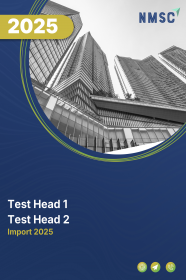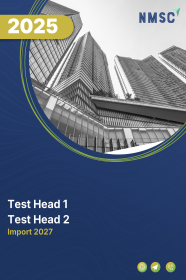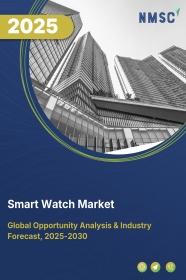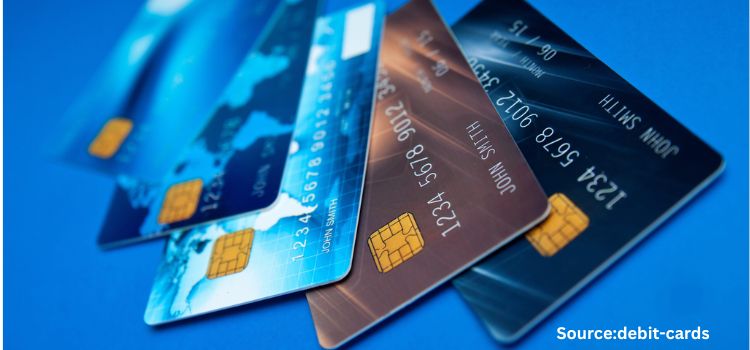
Self-Adhesive Labels Market by Type (Linerless and Release Linear), by Nature (Permanent, Removable, and Repositionable), by Technology (Flexography, Digital Printing, Lithography, Screen Printing, Gravure, Letterpress, and Offset), by Application (Food & Beverages, Consumer Durables, Pharmaceuticals, Home & Personal Care, Retail Labels, E-Commerce, and Others) –Global Opportunity Analysis and Industry Forecast 2024-2030
US Tariff Impact on Self-Adhesive Labels Market
Trump Tariffs Are Reshaping Global Business
Market Definition
The Self-Adhesive Labels Market size was valued at USD 50.93 billion in 2023 and is predicted to reach USD 73.53 billion by 2030 with a CAGR of 5.4% from 2024-2030. Self-adhesive labels, also known as pressure-sensitive labels, are a type of label designed to adhere to surfaces upon application of pressure without the need for additional activation such as heat or moisture. The market comprises a broad range of label varieties, including paper, plastic, and metallic substrates, tailored to specific needs for durability, visual appeal, and practicality. Self-adhesive labels provide ease of application, flexibility in design, and resistance to environmental factors, fuelling their widespread adoption across various industries.
Market Dynamics and Trends
The growth of the self-adhesive labels market is influenced by stringent regulations imposed by governments worldwide on product labelling. These regulations are aimed at enhancing consumer safety, providing transparency, and promoting environmental sustainability. The regulatory labels include safety warnings, disposal instructions, and product authentication which provides the consumers with vital information about the products they purchase., thereby fuel the market growth.
Moreover, the growth in packaging food in the food and beverages sector increases the demand for self-adhesive labels, as they are widely used for promotion, marketing, and product differentiation. The self-adhesive labels are use to display important information such as expiry date, batch numbers, and product freshness, ensuring freshness of the product, thereby fuels the growth of the market. Thus, the increasing reliance on self-adhesive labels in the food and beverages industry not only enhances promotional efforts but also ensures regulatory compliance and product integrity, fortifying their essential role in driving market expansion.
Furthermore, the growing expansion of e-commerce sector worldwide is further propelling the growth of the market, as they are widely use to label packages with shipping addresses, tracking numbers, and other pertinent information. Additionally, self-adhesive labels play a crucial role in ensuring compliance with shipping regulations by prominently displaying mandatory information such as package dimensions, weight, and handling instructions. Consequently, as the e-commerce sector continues to flourish, the demand for self-adhesive labels escalates, thereby feeling the market's expansion.
However, concerns related to the environmental impact of adhesive labels, especially regarding disposal and recycling, pose hindrance to the growth of the market. On the other hand, integration of RFID (Radio Frequency Identification) and NFC (Near Field Communication) technologies will create future opportunities for the market. By integrating these technologies self-adhesive labels will enable functionalities such as product tracking, authentication, and interactive engagement with consumers via smartphones. These smart labels will revolutionize inventory management, supply chain visibility, and customer experiences, enhancing the productivity of the labels.
Market Segmentations and Scope of the Study
The self-adhesive labels market is segmented on the basis of type, nature, technology, application, and region. On the basis of type, the market is divided into linerless and release linear. On the basis of nature, the market is bifurcated into permanent, removable, and repositionable. On the basis of technology, the market is further divided into flexography, digital printing, lithography, screen printing, gravure, letterpress, and offset. On the basis of application, the market is further divided into food & beverages, consumer durables, pharmaceuticals, home & personal care, retail labels, e-commerce, and others. Regional breakdown and analysis of each of the aforesaid segments include regions comprising North America, Europe, Asia-Pacific, and RoW.
Geographical Analysis
Asia-Pacific holds the dominant share of self-adhesive label market at present and is expected to continue its dominance during the forecast period. This is due to the rising demand for packaging food products driven by factors such as urbanization, changing lifestyles, and increasing disposable incomes across the region. Self-adhesive labels provide essential information including nutritional information, ingredients list, and expiry date. The growing demand for packaged food is highlighted in a report published by the United States Department of Agriculture, which states that the sales of packaged food by volume in India surged by 18.5% in the year 2022 compared to 2018, therefore boosts the growth of the market.
Moreover, the growing food processing sector within the Asia-Pacific countries such as India, China, and Japan are further driving the growth of the market. The growth in the sector is backed by numerous factors, including governmental schemes such as PM Formalisation of Micro Food Processing Enterprises Scheme which provide technical, financial, and business support to upgrade food processing units. Also, as per a report published by Ministry of Food Processing Industries, the Food Processing sector in India experienced a significant growth with an average annual growth rate of 7.6% in the year 2021-2022. This growth within the sector highlights the increasing utilization of self-adhesive label to project essential information and description of the product, thus boosts the growth of the market.
On the other hand, North America is showing a steady rise in the self-adhesive labels market due to the growing e-commerce sector in North American countries such as the U.S, Mexico, and Canada. According to a report published by United States Census Bureau, the e-commerce sector in the U.S is growing with an increase in sales by 7.6% in the year 2023 compared to the year 2022. This growth in sector fuels the adoption of self-adhesive labels market to provide mandatory instructions, thus fuelling the growth of the market.
Moreover, the growing pharmaceutical industry backed by government policies and initiatives further fuels the growth of the market. According to a report published by the U.S Department of Health and Human Services, the U.S administration launched a series of actions to develop the pharmaceutical sector, such as the Defense Production Act, which increases the medical supply to make more essential medicines available in America and mitigate drug shortages. Thus, by fostering regulatory compliance, enhancing supply chain efficiency, and addressing emerging challenges such as counterfeiting, government actions play a crucial role in driving demand and innovation within the self-adhesive labelling industry.
Competitive Landscape
The self-adhesive labels market comprising of various market players such as Herma, CCL Industries Inc., Avery Dennison Corporation, Fuji Seal International Inc., H.B. Fuller Company, LINTEC Corporation, Coveris, JK Labels, Mondi, and Multi-Color Corporation among others. These market players are adopting various product launch and partnership of business across various regions to maintain their dominance in the self-adhesive label market.
For instance, in October 2023, Herma launched the Herma rPE, a cost-effective and sustainable self-adhesive label material composed of 50% post-consumer recycled materials (PCR) and 50% new plastics. The film is resistant to moisture, soaps, and oils, making it particularly suitable for product labels in the personal care, cosmetics, and household products sectors. This innovative solution aligns with the growing demand for eco-friendly packaging materials in these industries, offering both environmental benefits and functional durability.
Furthermore, in April 2023, Avery Dennison and Dow jointly launched an innovative hotmelt label adhesive that enables filmic labels and packaging to be mechanically recycled together in one stream. This is the first olefinic hotmelt adhesive of its kind on the label market, specifically designed for chilled food applications.
KEY BENEFITS
-
The report provides quantitative analysis and estimations of self-adhesive labels market from 2024 to 2030, which assists in identifying the prevailing market opportunities.
-
The study comprises a deep dive analysis of the self-adhesive labels market including the current and future trends to depict prevalent investment pockets in the market.
-
Information related to key drivers, restraints, and opportunities and their impact on the self-adhesive labels market is provided in the report.
-
Competitive analysis of the players, along with their market share is provided in the report.
-
SWOT analysis and Porters Five Forces model is elaborated in the study.
-
Value chain analysis in the market study provides a clear picture of roles of stakeholders.
KEY MARKET SEGMENTS
By Type
-
Linerless
-
Release Linear
By Nature
-
Permanent
-
Removable
-
Repositionable
By Technology
-
Flexography
-
Digital Printing
-
Lithography
-
Screen Printing
-
Gravure
-
Letterpress
-
Offset
By Application
-
Food & Beverages
-
Consumer Durables
-
Pharmaceuticals
-
Home & Personal Care
-
Retail Labels
-
E-Commerce
-
Others
By Region
-
North America
-
The U.S.
-
Canada
-
Mexico
-
-
Europe
-
The UK
-
Germany
-
France
-
Italy
-
Spain
-
Denmark
-
Netherlands
-
Finland
-
Sweden
-
Norway
-
Russia
-
Rest of Europe
-
-
Asia Pacific
-
China
-
Japan
-
India
-
South Korea
-
Australia
-
Indonesia
-
Singapore
-
Taiwan
-
Thailand
-
Rest of Asia Pacific
-
-
RoW
-
Latin America
-
Middle East
-
Africa
-
REPORT SCOPE AND SEGMENTATION:
|
Parameters |
Details |
|
Market Size in 2023 |
USD 50.93 billion |
|
Revenue Forecast in 2030 |
USD 73.53 billion |
|
Growth Rate |
CAGR of 5.4% from 2024 to 2030 |
|
Analysis Period |
2023–2030 |
|
Base Year Considered |
2023 |
|
Forecast Period |
2024–2030 |
|
Market Size Estimation |
Billion (USD) |
|
Growth Factors |
|
|
Countries Covered |
28 |
|
Companies Profiled |
10 |
|
Market Share |
Available for 10 companies |
|
Customization Scope |
Free customization (equivalent up to 80 working hours of analysts) after purchase. Addition or alteration to country, regional, and segment scope. |
|
Pricing and Purchase Options |
Avail customized purchase options to meet your exact research needs. |
KEY PLAYERS
-
Herma
-
CCL Industries Inc.
-
Avery Dennison Corporation
-
Fuji Seal International Inc.
-
H.B. Fuller Company
-
LINTEC Corporation
-
Coveris
-
JK Labels
-
Mondi
-
Multi-Color Corporation

















 Speak to Our Analyst
Speak to Our Analyst





















